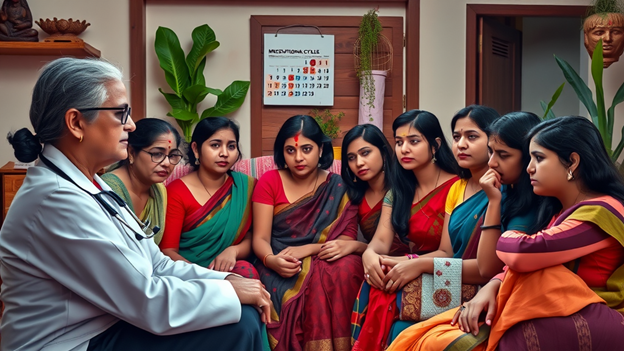Polymenorrhea, a lesser-known menstrual condition, is a significant health concern for women, particularly in India. Unlike a regular menstrual cycle that occurs every 28 to 30 days, polymenorrhea means getting periods more frequently, often every 21 days or fewer. For women experiencing this, the frequent bleeding affects their everyday lives, causing discomfort and stress. It can have far-reaching impacts, including physical challenges like fatigue and emotional upheavals due to its unpredictable nature. The understanding of polymenorrhea is crucial for improving women’s health and well-being.

Understanding Polymenorrhea: Causes and Symptoms
Polymenorrhea is when periods occur more than once every 21 days. It happens for various reasons.
– Hormonal imbalances lead the list of causes. When hormones are fluctuating, cycles shorten.
– Lifestyle choices, such as stress or significant weight changes, also contribute.
– Medical conditions like thyroid disorders or infections can play a role.
– Genetic factors might make some women more prone to it.
Common symptoms include frequent menstruation, shorter cycles, and spotting between periods. If these occur, consulting a professional is key. The doctors will help determine the underlying reason and suggest solutions.
The Emotional and Physical Impact of Polymenorrhea
Experiencing frequent menstrual cycles can affect a woman’s life in multiple ways. Polymenorrhea can make it harder to conceive, thus impacting fertility. It also takes a toll on one’s well-being by depleting energy levels due to frequent blood loss. Emotionally, it can be distressing, leading to anxiety and stress as women navigate the unpredictability of their cycles.
Getting help early can make a big difference. Institutions like Chhabra Hospital offer guidance and support, helping to ease the burden. Here, understanding polymenorrhea and tackling it head-on can transform a woman’s quality of life.
Exploring Treatment Options at Chhabra Hospital
Chhabra Hospital is dedicated to helping women manage polymenorrhea effectively. They start with initial diagnosis and assessment procedures to pinpoint the cause. Modern treatment methods offered by the hospital focus on tackling underlying causes and relieving immediate symptoms, improving life flowingly.
- Doctors may suggest lifestyle changes like a balanced diet to help ease symptoms.
- Regular exercise can regulate hormones and reduce stress levels.
- Medications might be suggested to correct hormonal imbalances.
Chhabra Hospital’s team collaborates with patients, ensuring tailored treatment plans for each individual.
Cultural Influence on Menstrual Health in India
In India, cultural context significantly affects how menstrual disorders like polymenorrhea are managed. Societal perceptions might make some hesitant to seek help, leading to untreated conditions. Menstrual health education is crucial in addressing this. It can reduce stigma and spread accurate information, encouraging women to seek professional advice without reservations.
Understanding how culture impacts health decisions can pave the way for open conversations. This shift promises better health outcomes and empowers women to take charge of their menstrual health.
Empowering Women Through Knowledge and Support
To sum up, understanding polymenorrhea is essential for managing its impact on women’s lives. With knowledge, women can take charge and seek help, improving their quality of life. Engaging in open discussions on menstrual health encourages awareness, breaking stereotypes and barriers. When it comes to menstrual health challenges, early and professional intervention is key.
Chhabra Hospital champions such causes, offering expert guidance designed to empower. By fostering a supportive environment, they enable women to reclaim their health. Awareness is the first step toward a healthier life. Encouraging every woman to understand and address polymenorrhea is a move towards a brighter future.

